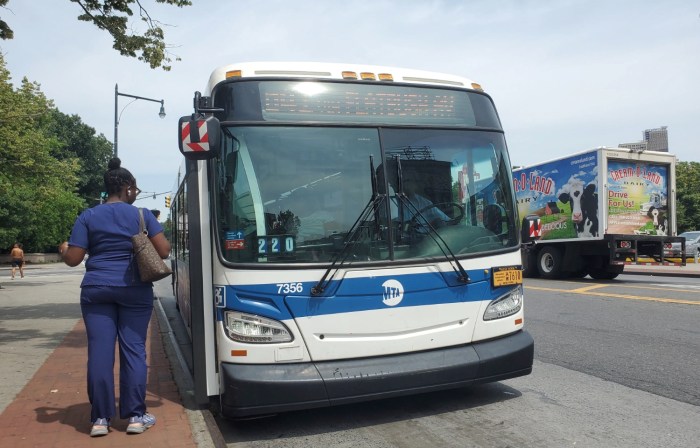By Courtney Dentch
But Skeete, a quadriplegic who is now 61 and living in St. Albans, had no way of getting himself to and from the classes that were held on the top floor of the school, he said.
“Where I came from there was only one university and it was not accessible to disabled people,” Skeete said. “People would have to carry me from classroom to classroom.”
Soon after, Skeete joined his family in Brooklyn before moving to St. Albans and searching for new higher education possibilities. This Thursday Skeete will finally receive the degree he has been seeking when he graduates from the New York City College of Technology with a bachelor's degree in technology in computer sciences.
“It was a very nice experience,” Skeete said. “It was very rewarding. It gives me the motivation to give back to society.”
Skeete served in the military in his homeland of Guyana for more than 25 years. When he was 26, he and his fellow Marines in the Guyanese Defense Force participated in a training exercise with the Trinidad and Tobago Coast Guards. Skeete dove into shallow waters and struck his head on a tree stump that was not visible from the surface of the water. He suffered irreversible damage to his spinal column and became a quadriplegic, he said.
“At first, of course, I was very distraught,” Skeete said. “But I found hope and guidance in the words of a doctor who advised me to concentrate not on what I had lost, but what I had left.”
Skeete remained in the military in an administrative and training capacity, and he retired at the rank of major in 1994 when he was 51, he said.
Frustrated by the lack of educational opportunities in Guyana, Skeete joined his relatives in New York and began exploring his options here, he said. He enrolled in a State University of New York college preparation course and then matriculated at the College of Technology, a City University campus in Brooklyn as a full-time student, he said. Skeete was amazed at how accessible everything is here, he said,
“There were elevators and ramps everywhere,” he said, referring particularly to his school. “And there was a student services offices and they leveled the playing field so all students have the same opportunity to get a higher education.”
But Skeete still had to be an advocate for himself and other disabled students, he said. In his computer classes, he could not fit his wheelchair underneath the regular desks, and he asked his professor if something could be done for him.
“It was immediately fixed,” Skeete said. “They even went further to make sure that all the computer classrooms had one terminal for disabled people.”
Skeete hopes to use his computer training to help disabled or underserved people, but he has also considered working in forensic science to help analyze crime data, or infomatics, a discipline that combines technology with the medical profession, he said.
“Those are two professions that are sorely needed in America,” he said. “There are always crimes that need to be solved and there are so many hospitals that need information technology. It's a move to really ensure there is an employment opportunity for me.”
But right now, Skeete is focused on the commencement ceremony at Madison Square Garden.
“I am glad I was able to stick it out to the very end,” he said. “I am the one who made up my mind to do it and now I have seen it out to the end.”
Reach reporter Courtney Dentch by e-mail at news@timesledger.com, or by phone at 718-229-0300, Ext. 138.


































